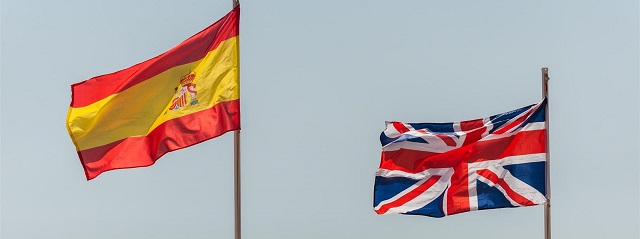In spite of Spain’s troublesome economic horizon, British investments relentlessly keep increasing their presence in the country. A look at the map shows that UK companies aren’t just interested in sectors where their hand has been visible for a long time, like mining, but have shifted towards the Spanish former public monopolies, from tobacco to telecoms.
Imperial Tobacco, for instance, now controls Altadis, which was a merger of the old Tabacalera with France’s Seita. Then, there is British Airways, in a somehow complex process of integration with Iberia. And Vodafone, the second telecom operator and Telefonica’s main competitor in Spain after it acquired Airtel.
Yet, these British large corporations are not alone in their long-term plans of tapping the Spanish domestic market. Leading businesses in the UK landed in Spain many years ago, like Cadbury Schweppes, Diageo (J&B and Jhnnie Walker), British American Tobacco, pharmaceutical companies GlaxoSmithKline and Astrazeneca, Imperial Chemical Industries, BP and Royal Dutch Shell, insurance firms Aviva and Halifax, car rents Avis, luxury brand Burberry, developers Colliers and Taylor Whimpey, mining Rio Tinto Group, and still some others like Kesa, National Express, Barclays, Royal Bank of Scotland and Lloyds.
According to official ICEX data about foreign investment, British gross investments in Spain in 2011 rose by 341 percent comparing to 2010 to €6.6 billion and reached the top place in the list of global investment in Spain. The UK received €4.1 billion of gross investment from Spain, 40 percent less than in the previous year.
British investments went into the air transport sector (€3.93 billion) and financial services (€1.4 billion), followed by telecommunications (€547 million). There are some 700 companies from the UK working in Spain–300 Spanish companies operate in the UK… and complain they had no warm welcome in the island. Does anyone need being reminded of the Armada claims by most British financial commentators when Banco Santander bought Abbey National, Bradford & Bingley, and Alliance & Leicester? Or when Telefónica acquired O2? Or when Iberdrola took Scottish Power, and a Ferrovial-led consortium pocketed their main airports?
Spanish fashion industry’s big names like Inditex and Mango are popular among Britons, though, and share a successful record with others in different fields, like Gamesa and Abengoa in renewable energy, Acciona, FCC and ACS in construction, or Repsol, Mapfre, Fagor, Acerinox, Abertis and Sol Meliá.
The conclusion is obvious: the UK and Spain are much closer than some headlines would make readers believe.






Be the first to comment on "UK Corp feasts in Spain"